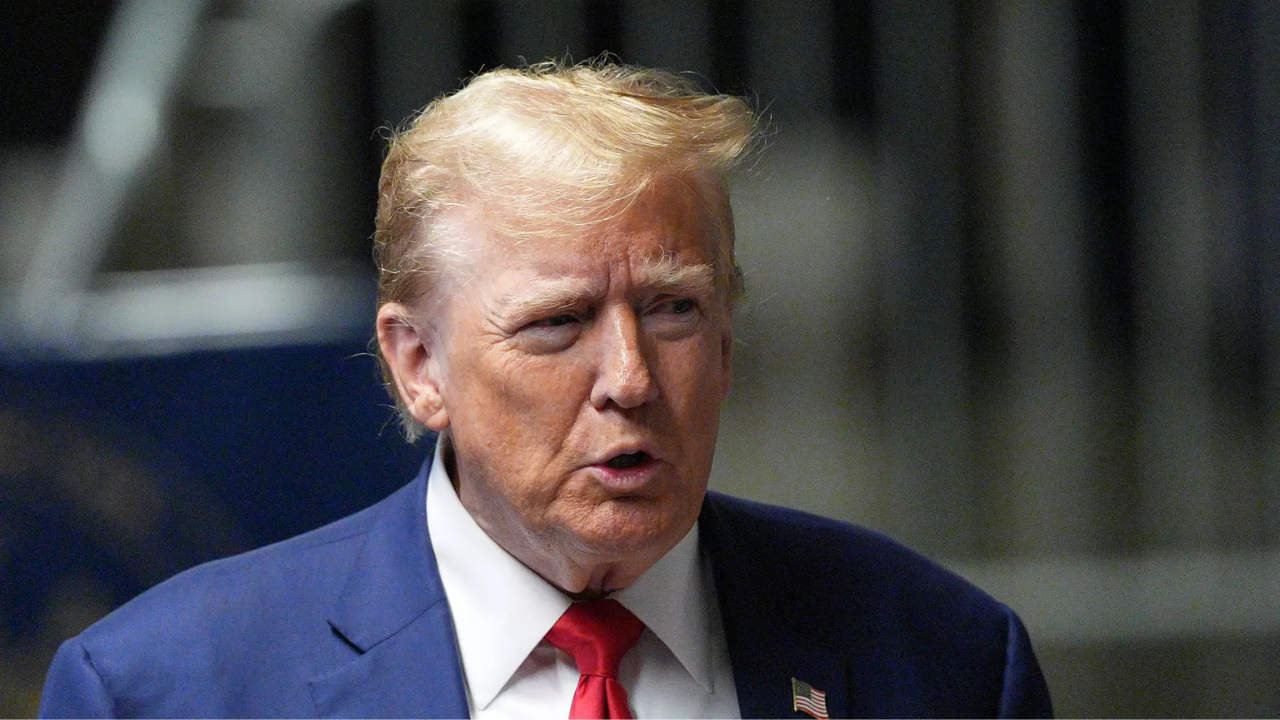Zelensky, In UN Showdown, Says Strip "Criminal" Russia Of Veto Power
Ukrainian President Volodymyr Zelensky on Wednesday confronted Russia directly at the UN Security Council, denouncing the Kremlin's invasion of his country as "criminal" and urging that Moscow be stripped of its UN veto power.

Ukrainian President Volodymyr Zelensky on Wednesday confronted Russia directly at the UN Security Council, denouncing the Kremlin's invasion of his country as "criminal" and urging that Moscow be stripped of its UN veto power.
Clad in his trademark military fatigues, Volodymyr Zelensky for the first time since the February 2022 invasion sat in the same room as a Russian official, who responded by scrolling through his smartphone with a look of conspicuous disinterest.
"Most of the world recognizes the truth about this war," Mr Zelensky said. "It is a criminal and unprovoked aggression by Russia against our nation aimed at seizing Ukraine's territory and resources."
President Zelensky called on the United Nations to strip Russia of its Security Council veto power, describing it as a vital reform that would simultaneously promote greater representation at the UN for the developing world -- where support for Ukraine has been lukewarm.
"Veto power in the hands of the aggressor is what has pushed the UN into a deadlock," Volodymyr Zelensky said.
"It is impossible to stop the war because all efforts are vetoed by the aggressor or those who condone the aggressor," he said.
President Zelensky repeated the Ukrainian stance that the veto power belonged to the former Soviet Union -- one of the victors of World War II after which the United Nations was created -- and not to President Vladimir Putin's Russia.
"Unfortunately, this seat in the Security Council, which Russia occupies illegally through backstage manipulations following the collapse of the Soviet Union, has been taken by liars whose job it is to whitewash the aggression and the genocide," Mr Zelensky said.
Russia scoffs
Taking away Russia's veto power would be exceedingly difficult.
There is, however, precedent: the UN General Assembly in 1971 stripped Taiwan of the veto power it held as the representative of China, handing it instead to the communist government of the mainland.
Tensions erupted even before Volodymyr Zelensky spoke, with the Russian side questioning the decision by current Security Council president Albania, represented by Prime Minister Edi Rama, to allow the Ukrainian to go first.
Russian Ambassador Vassily Nebenzia, repeatedly asking to speak, told Rama that letting Zelensky, a former comedian, appear first risked "undermining the authority of the Security Council" and turning it into "a one-man stand-up show."
Edi Rama responded calmly but with growing annoyance, telling the Russian envoy, "There is a solution here -- you stop the war, and President Zelensky will not take the floor."
Secretary-General Antonio Guterres spoke before President Zelensky and also strongly criticized Russia.
"Russia's invasion of Ukraine, in clear violation of the United Nations Charter and international law, is aggravating geopolitical tensions and divisions, threatening regional stability, increasing the nuclear threat and creating deep fissures in our increasingly multipolar world," Antonio Guterres said.
Albania allowed a list of 63 speakers for the session. Others also scheduled to attend included Russian Foreign Minister Sergei Lavrov and US Secretary of State Antony Blinken.
Sergei Lavrov, himself a former UN ambassador known for his sharp-tongued remarks, arrived in New York late Tuesday, with official Russian media saying he flew a circuitous route to avoid European airspace.
Vladimir Putin, who rarely travels to the United Nations, did not come this year. He has skipped other high-profile diplomatic gatherings as Western nations seek to isolate him and as he faces an arrest warrant issued by the International Criminal Court.
Courting world opinion
Addressing the General Assembly on Tuesday, Mr Zelensky said that Russia's deportations of Ukrainian children -- which triggered the warrant for Putin -- constituted "genocide."
President Zelensky cast support for Ukraine as in the world's interest, saying that Russia was "weaponizing" both food and energy, including by halting a UN-backed arrangement that let Ukraine ship grain safely through the Black Sea.
"For the first time in modern history, we have the chance to end the aggression on the terms of the nation which was attacked," Volodymyr Zelensky said in a speech met with applause led by Western nations but many empty seats elsewhere.
Some developing nations have been critical of the attention granted to Ukraine, which has received some $43 billion in military aid from the United States alone.
"It is a grave indictment of this international community that we can spend so much on war, but we cannot support action that needs to be taken to meet the most basic needs of billions of people," South African President Cyril Ramaphosa said Tuesday.
(Except for the headline, this story has not been edited by NDTV staff and is published from a syndicated feed.)



































![Safari Thorium Neo 8-Wheel Luggage Set Trolley Bags (Set of 3) at just Rs. 5,599 [MRP 29,100]](https://savefree.in/uploads/images/202409/image_870x580_66f63845060f0.webp?#)












![Handmade Brown Mango Wood Chopping Board At just Rs. 89 [MRP 599]](http://savefree.in/uploads/images/202303/image_870x580_641bf7e9c2206.jpg?#)


